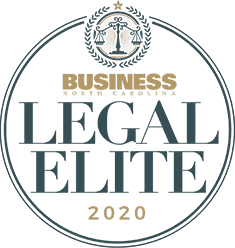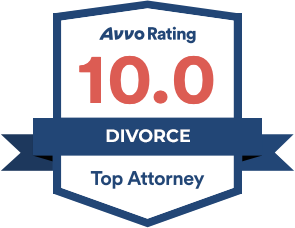
Charlotte Collaborative Divorce Attorney
What Is Collaborative Law Divorce?
Collaborative Law Divorce is a new and unique approach to family law that seeks to eliminate the adversarial court process and commits to reaching a deeper and long-lasting resolution to the end of a marriage. The core theme of Collaborative Law Divorce is that when parties stop being adversaries and instead focus on the long-term emotional, psychological, and financial health of both spouses and their children, everyone will achieve a much more satisfying outcome.
Parties that commit to the Collaborative Law Divorce process agree to negotiate and work towards a comprehensive settlement of a range of issues including:
The core theme of Collaborative Law Divorce is that when parties stop being adversaries and instead focus on the long-term emotional, psychological, and financial health of both spouses and their children, everyone will achieve a much more satisfying outcome.
SCHEDULE A FREE CASE EVALUATION
Why Choose Collaborative Divorce?
With our Charlotte collaborative divorce attorney you will be supported by professionals with the right expertise to guide and inform you along the way. The results are legally binding agreements that resolve the issues facing you and your family. The Collaborative process preserves your privacy and dignity while giving you the best possible chance at resolving your disputes respectfully.
Collaborative Practice differs from conventional divorce in 3 important ways:
- You and your spouse or partner, along with your Collaborative Professional Team, pledge in writing not to go to Court.
- You and your spouse or partner, rather than a Judge, decide what is best for you and your family.
- Respectful, face to face conversations between you and your spouse or partner, along with the support and guidance of your Collaborative Professional Team, lead to a legally binding, long lasting settlement.
You and your spouse will work with your Collaborative team in a series of face-to-face meetings, at the pace that is right for you. You will maintain open communication, and information will be shared freely. Together, using a problem-solving approach, you can find long-lasting solutions.
How is the Collaborative Divorce Process in North Carolina?
In a collaborative divorce, both spouses and their attorneys agree not to go to court, creating a strong incentive to work together toward a peaceful resolution. If the process fails and litigation becomes necessary, both attorneys must withdraw, and the couple must hire new lawyers. This commitment helps maintain cooperation throughout the process.
The process typically follows these steps:
- Initial Consultation: The couple meets with their attorneys to discuss the collaborative divorce process, the roles of any additional professionals (such as financial experts or therapists), and the potential benefits compared to traditional litigation. Each party’s goals, such as property division and child custody, are discussed to determine if collaborative divorce is the right choice.
- Team Formation: Professionals, such as financial experts and mental health professionals, may be brought in to assist. Financial neutrals help with asset division, while divorce coaches or therapists address emotional aspects and communication. These experts work together to guide negotiations.
- Negotiation and Settlement: The spouses, their attorneys, and any other professionals meet regularly in a safe, neutral environment to negotiate child custody, asset division, and other divorce-related issues. The process encourages cooperation, where both parties have a say in the outcome, as opposed to a court-imposed decision.
- Drafting the Final Agreement: Once a settlement is reached, the collaborative divorce attorneys in Charlotte draft a final agreement outlining the divorce terms. The couple reviews it, and once approved by the court, the agreement becomes part of the official divorce decree.
What are the Advantages of a Collaborative Divorce in North Carolina?
Court-Free Divorce Options
Because the collaborative process does not involve the court, parties are not bound by litigation deadlines or the pressure of mandatory hearings and trials. This allows parties to work at their own pace towards settlement and take additional time where needed.
For example, if the parties feel a child is having difficulties adjusting to the separation, the collaborative process can adjust timelines and allow more time for the collaborative child therapist to work with the child before the parties are forced to make long-term decisions on a custody schedule.
Alternatively, a court hearing date on child custody is set and moves forward regardless of whether the children or parents are emotionally ready to do so.
The Collaborative Contract
Collaborative Law Divorce is different than other types of mediation or negotiation because of the Collaborative Contract.
At the beginning of the Collaborative Law Divorce process, both spouses and their attorneys execute a written contract which requires:
- Good faith negotiation
- An open and honest disclosure of issues and facts
- And a voluntary exchange of financial and other pertinent information and documents
The Collaborative Contract also states that if one spouse wishes to end the collaborative process and pursue court action, the collaborative divorce attorneys for both parties must end the representation and terminate their relationship with the spouse. As a result, spouses are incentivized to continue to work toward settlement rather than pursuing court action as an emotional reaction.
Faster and More Cost-Effective
Collaborative divorce tends to be faster and more cost-effective than traditional litigation. Since both parties are working toward a mutually beneficial resolution, the process can move forward more efficiently, with fewer delays and less back-and-forth. Additionally, the involvement of neutral professionals (such as financial experts) can help streamline discussions and reduce the time and resources spent on contentious legal battles.
Confidentiality and Privacy
Unlike traditional divorce proceedings, which are public and can result in sensitive personal information becoming part of the public record, collaborative divorce is private and confidential. This allows spouses to resolve their differences in a safe and protected environment, ensuring that personal information remains within the bounds of the collaborative process.
Miller Cushing Holladay partner Chris Miller is certified Collaborative Law attorney in Charlotte, trained and experienced in this new and rapidly expanding area of law. Call 980-321-5590 or contact us online to schedule a consultation.

When Is Collaborative Divorce Not the Right Option?
While collaborative divorce offers numerous benefits, it is not suitable for everyone. Collaborative divorce may not be appropriate if:
- One spouse is unwilling to negotiate in good faith or refuses to participate in the process.
- There is a history of domestic violence or abuse.
- One spouse is hiding assets or engaging in dishonest behavior.
- One or both spouses are not committed to reaching a fair settlement.
In such cases, traditional divorce litigation may be necessary to ensure a fair and just resolution. However, for couples who are willing to work together in a respectful and cooperative manner, collaborative divorce can offer a positive alternative to the adversarial process of litigation.
How a Collaborative Divorce Attorney Can Help You?
Choosing to amicably separate from your spouse through a collaborative divorce requires professional guidance and support, which is where a collaborative divorce attorney becomes invaluable. These attorneys are trained to facilitate open communication and negotiate fair agreements without resorting to litigation. They ensure that both parties understand their rights and obligations, helping to establish a foundation of trust and respect throughout the process.
Our Charlotte collaborative divorce attorney will work closely with you to identify your priorities and goals, allowing for customized solutions that cater to the unique needs of your family. They bring together a team of professionals, including financial advisors and child therapists, to provide a comprehensive approach to the separation. This holistic strategy ensures that all aspects of the divorce—financial, emotional, and logistical—are addressed in a manner that minimizes conflict and promotes long-term well-being.
In addition to fostering a non-adversarial environment, collaborative divorce attorneys emphasize confidentiality and privacy, shielding your personal matters from public court records. This can be particularly beneficial for protecting the interests of any children involved and maintaining a sense of normalcy during the transition. By committing to the principles of collaborative divorce, your attorney helps you craft a mutually satisfactory agreement that lays the groundwork for a positive post-divorce relationship.
Contact Miller Cushing Holladay Today
Miller Cushing Holladay attorney Chris Miller is certified by the International Academy of Collaborative Professionals (IACP), and utilize the Collaborative Practice.
The International Academy of Collaborative Professionals is an international community of legal, mental health, and financial professionals working in concert to create client-centered processes for resolving conflict. The preceding information can be found in the IACP E-brochure here: IACP E-brochure.

-
“Bethany was encouraging of questions and seems very knowledgeable”
– Jeremy Q. -
“Chris Miller and Brett Holladay were remarkable in their approach, plan and execution in my divorce case”
– Anupam P -
“I appreciate all he did to help”
– Elka J. -
“They were responsive to all of our concerns and really seemed to care about getting us the outcome that we wanted”
– Miranda M. -
“The ethics, personal client attention, and diligent client representation are well known within the local legal community.”
– Jenny H.
Contact Our Firm
Call 980-321-5590 or Fill Out this Form to Begin Your Case







